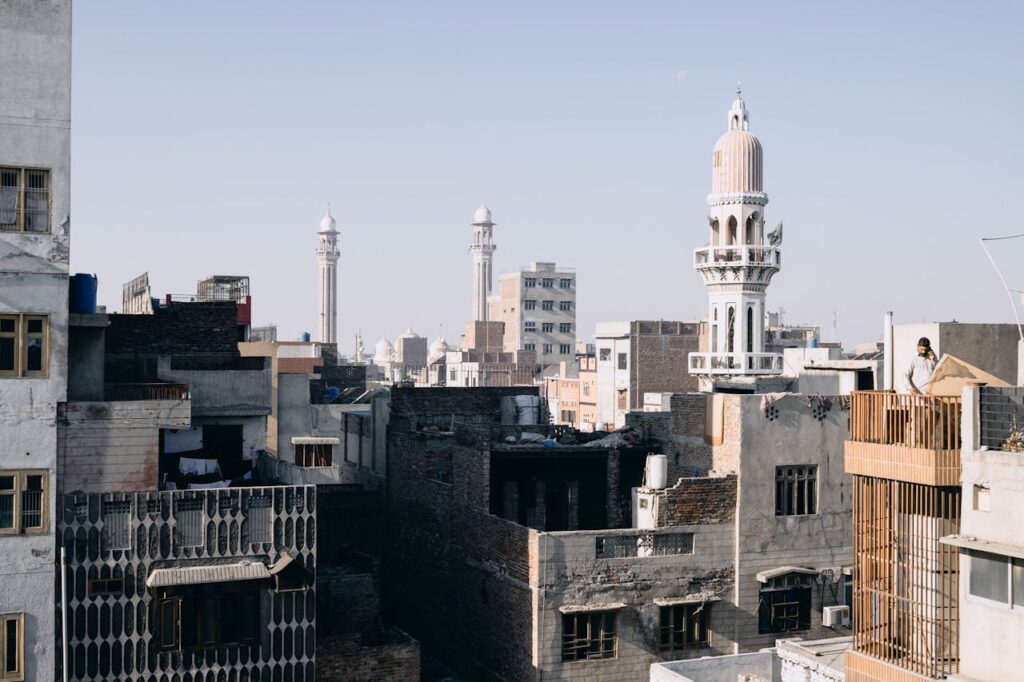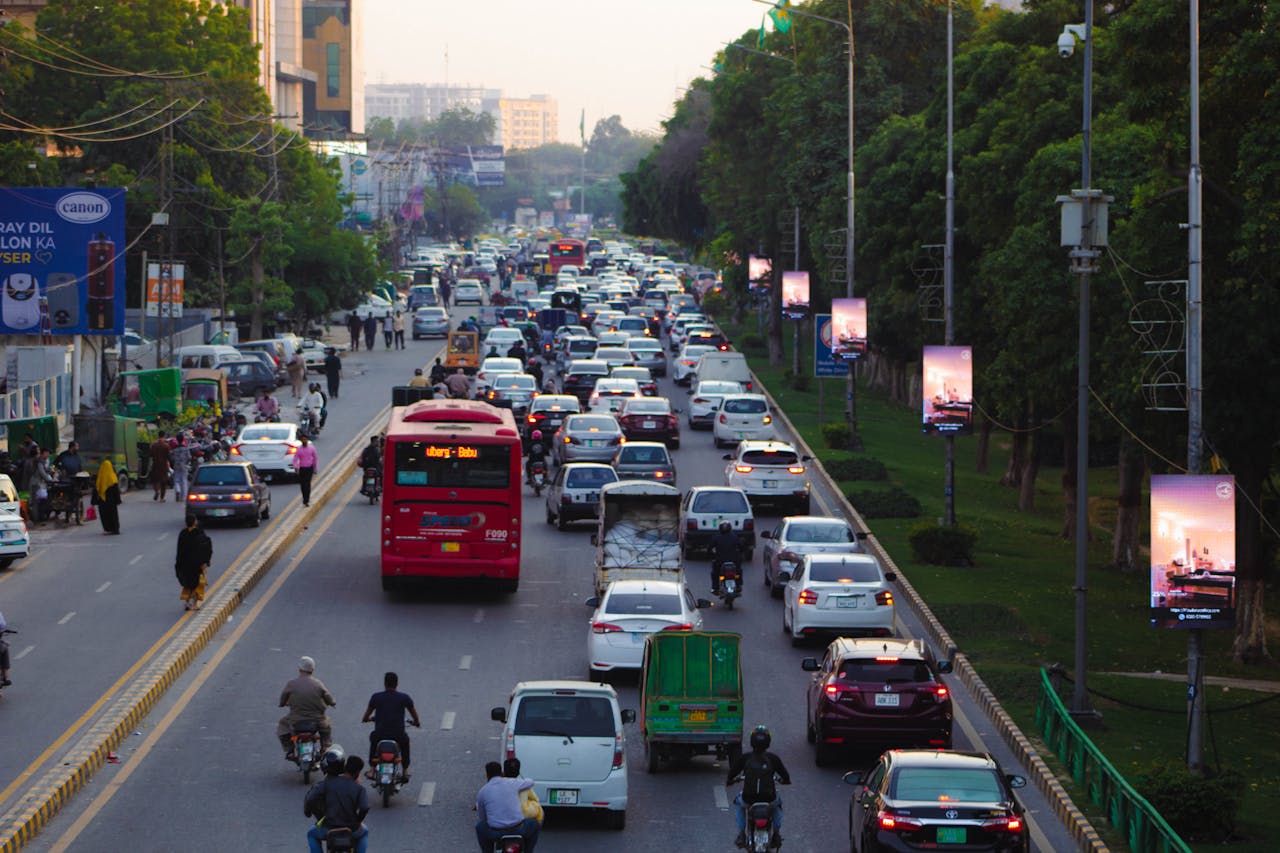Urbanization in Pakistan: Reasons and Consequences
Pro-urbanization has also been on the rise in Pakistan which had seen the size of the population shifting from rural areas to urban areas over the past decades.
Urbanisation occurs at a high rate making the acceleration of socio-economic and environmental change in the country a reality.
Pakistani urbanization: motivation, effects, and the way forward: This blog focuses on the motivation for the urban population expansion in Pakistan, the impacts as well as the approaches towards this change.
Forces behind Urban Growth in Pakistan
The process of urbanization in Pakistan is therefore determined by social-economic forces, politics and demography.
These drivers show how diffusion and push factors influence migration towards the cities.
1. Rural-Urban Migration
Rural-urban Migration is one of the key causes of urbanization.
This leaves people from rural areas flocking into cities in the hope of sourcing for jobs, getting better standard of living, education and quality health care.
This means that the agricultural sector has remained stagnant to support the population, and rainfall shocks that affect yields make rural income generations even harder.
2. Industrialization and Economic Furthering
Places like Karachi Lahore and Faisalabad are industrial and economic center through people flock there from different part of the country in search of employment.
Manufacturing, trade and services sector employment opportunities urge people to migrate to urban areas.
3. Population Growth
The populated country which actually enjoys the high rate of population growth is Pakistan.
Due to the fact that population in the natural course grows and there are migration trends from one area to another, the establishment of more expansive urban sectors has been supported.
4. Infrastructure Development
It also means that as the transport, communication and housing infrastructure in cities is enhanced, people from fairly developed areas are attracted to live in these cities.
Such schemes as the Belt and Road project for instance the China Pakistan Economic Corridor (CPEC) have however compounded urbanisation in some areas.
This is because political instability is an important factor for explaining insecurity issues.
Political and social turbulence in the rural and tribal provinces of the country especially in Khyber Pakhtunkhwa and Baluchistan has led to massive staring and joblessness which drives the families to urban regions.

Consequences of Urbanization in Pakistan
The process of urbanisation in Pakistan has being on high, and as a result of this, it has caused social, economic and environmental changes some of which are hard to contain.
1. Demand for More Housing and infrastructure
This has resulted in an urgent housing crisis mainly caused by high influx of people in cities where shanty towns and informal settlements are now rampant.
Most of these areas do not have necessary needs such as clean and safe water, proper sanitation, and probably electricity.
2. Strain on Public Services
In exercising their rights, citizens have demanded their entitled services but such as healthcare, education and transportation, among others, have been stretched beyond their capacities due to growth of urbanization.
These systems fail to satisfy the expectations of ever expanding populations resulting in poor systems being overwhelmed.
3. Unemployment and structural/beginners employment or vulnerability.
Cities guarantee employment, but these opportunities are not for all those concerned.
This has led to high level of unemployment and trafficking and job insecurities together with informal and vulnerable jobs.
4. Environmental Degradation
The latter is more so due to uncontrolled and unorganized growth of cities that would result to deforestation, loss of agricultural lands as well as pollution.
Some of the major affected cities include Karachi and Lahore its air quality is highly affected by industrial emissions and traffic pollution.
5. Transport Costs and Traffic Jam.
This is the case with the urban city of Pakistan as the road networks are poorly planned and the non existent transport system is incapable to providing for the traffic associated with medium and large scale cities.
It does not only lead to such economic losses, but it also adds to the pollution of the air.
6. Social Inequalities
Socio-economic inequity has been compounded by urbanization.
While some people who reside in urban areas have all the amenities of the contemporary society they enjoy the comfort of the modern society most people struggle to live in some dilapidated structures that offer very poor living standards.
7. Impact of Cultural Transformation and Urban Pressure
Migration from countryside to city challenges some persons’ ethnical expectations and can cause an individual to feel they are under stress.
The culturally approved systems of support dissolves in Urbanization centers creating social problems such as loneliness and mental illnesses.
Managing Urbanization: Solutions for Sustainable Growth
For Pakistan to effectively face the complexities of urbanization, it is pertinent that the country has and implement broad and visionary policies towards sustainable and pro poor urbanism.
1. Planned Urban Development
It is imperative to develop an effective basis to enhance the capabilities of urban planning and governance.
Master plan at else city especially reaching to zoning area, infrastructural development and even public green area can help to avoid this uncontrolled spread.
2. Affordable Housing Programs
Spending on affordable housing projects can help eliminate slum problems and offer populace living standards that the poor can afford.
According to the work done by various authors, PPPs can help in filling the shortage of houses for people.
3. Improving Public Services
More people need to go to school, more must use clean water to heal and stay healthy, and more should have access to healthcare in urban setting.
Expanding or procuring new related infrastructures to close gaps areas can help relief the overburden on the public services.
This means that efficient transport systems must should be well developed and with proper functional framework put in place.
The construction of various combined and convenient public transport systems which include the rail systems and BRT can help to ease on traffic jam and pollution.
4. Economic Empowerment
Economic intervention in the veritable development of skills, creation of employment opportunity will help to address unemployment in the urban space.
Entrepreneurship development and the support of base of enterprises can promote the integration of migrants into the urban economy.
5. Environmental Sustainability
Therefore more efforts should be applied on some of the key areas of green urban development such as renewable energy, waste management and sustainable construction.
Measures fighting air pollution that threaten residents’ health must be taken, for example, by transitioning to electric cars.
6. A Review on Decentralization and Rural Development
This means that in order to relieve large populated centers’ population, the issue of effective regionalization must be solved.
Supporting construction of infrastructure in rural regions, development of health care and education can make these regions more habitable thus stemming the flow of residents to urban provinces.
Conclusion
Urbanization is a challenge and opportunity as a context of Pakistan.
It has the capability of stimulating growth and modernization since its unplanned form has rendered several socio-economic and environmental challenges.
If Pakistan focuses on underlying factors that trigger its inhabitants to flock urban centers, together with dedication to sound urban development, the nation stand to optimize for urbanization without suffering the smash.
Promoting sustainable spatial development of cities is important in order to ensure that the growth of urban centers will play a coherent role in the development of the country.
Also read: Urbanization and Economic Growth What’s the Connection

